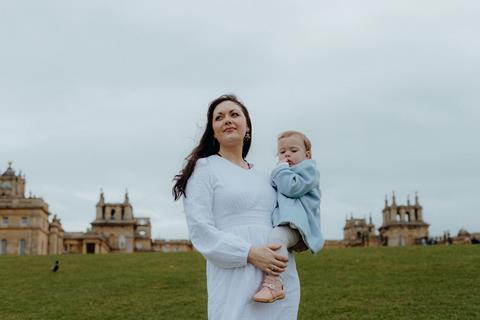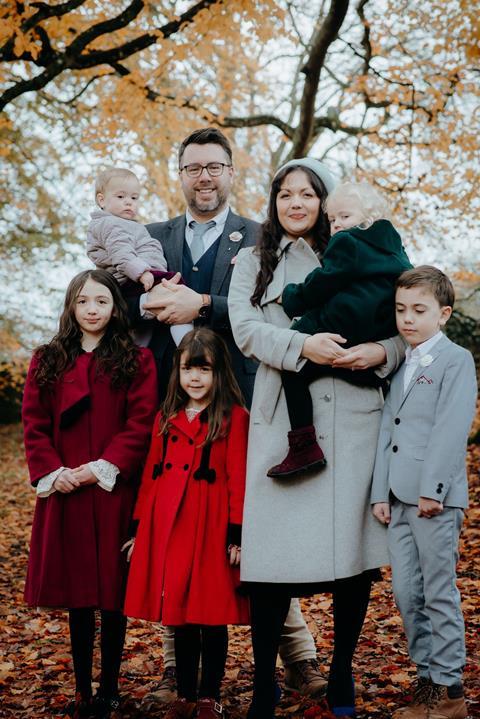What does it mean to be a holy woman in a modern world? Megan Madden writes about finding fulfilment in taking a traditional role in the home, and why she believes it glorifies God.

It was August 2017 and I had just arrived in Austria with my husband and three children. We moved from Florida to a small town called Trumau—located outside of Vienna—for my husband’s theological studies. As a side project to my motherhood I decided that I should take advantage of the adventure and, since we lived on campus, take a few graduate courses on marriage and family studies.
I never finished those studies due to pregnancies (a couple of which we lost). But I had no qualms with not finishing because it sparked in me a great desire to understand what it means to be a holy woman in our modern world.
All women are called to motherhood.
After the birth of our fourth baby we moved to Poland where I worked with university students, bringing my children alongside me. I left that job in 2020 to be a full-time homemaker and mother and have since found great fulfilment in taking on a more traditional role within the home.
Feminine Gifts
When I left my studies I turned to prayer, study of scripture, and philosophy as a way to learn more about what it means to be a woman (the topic that most intrigued my interest and filled my prayer life at the time). Within the blueprint of God’s plan for the family I dug up treasures I never knew: the significant gifts given to woman for her role as mother (be it spiritual or physical motherhood).
I believe all women are called to motherhood. To embrace femininity and live out a nurturing spirit, gentleness, receptivity; to be a helpmate to her husband, and to receive the heart of others well. A woman has the power to mold, shape, and guide future generations. Her role is pivotal in our society, especially within the context of the home where she creates a family culture and builds up the domestic church.
Biblical Examples
The Proverbs 31 woman is a common example of characteristics of holy womanhood. She is the ultimate homemaker: fueled by wisdom, lamp lit, a true friend to her husband, receiving children as blessing. Her heart is a safe haven for her loved ones and she works diligently to keep her house and home.

We see an example of this woman very tangibly in Mary, the Mother of our Lord who in her “yes” to God sets an example for us to give our own “yes” daily. She was obedient to her husband, who in the stir of a quiet night in Bethlehem told her they must leave to save the Christ child’s life. Her few but powerful words within the Gospels point to Christ as she whispers, “do whatever he tells you.” (John 2:5). Something as women we might emulate as we hope to be spiritual Christ-bearers ourselves.
Biblical femininity is so much more than a trend. It is about entering into the identity of who we are made to be as woman.
Biblical femininity is so much more than a trend. It is about entering into the identity of who we are made to be as woman. I found in my journey that the more I embraced my feminine characteristics and sought healing in the areas in which I struggled, the more I took on what I like to call a holy confidence in who I am. It led to a tangible expression of femininity in my words, service to my family, and even affects the way I dress.
Read more thoughts on what it means to be a woman
Unpacking the strong black woman stereotype
A homemaker
Work as a homemaker is a lost art being found again. Resurrected in the eyes of women today and seeking to bring back what once had been in order to form and cultivate strong marriages and godly families. All women have an opportunity to turn a house into a home. To cut the fresh flowers, light candles at their Monday night dinner table, to wash dishes joyfully and serve with love. There is something unique and exciting for every woman within the context of making a home. It is a service fueled by love; an opportunity as women to set the tone and create a welcoming and warm safe haven for others.
There is a growing identity crisis in our times as we seek to understand masculinity and femininity within the context of faith. The liberation of women in the 1960s sought freedom from the home. But I’d argue that there’s so much happiness and joy still to be found within the home, whether a woman works outside it or not.
We are the homemakers.

































3 Readers' comments